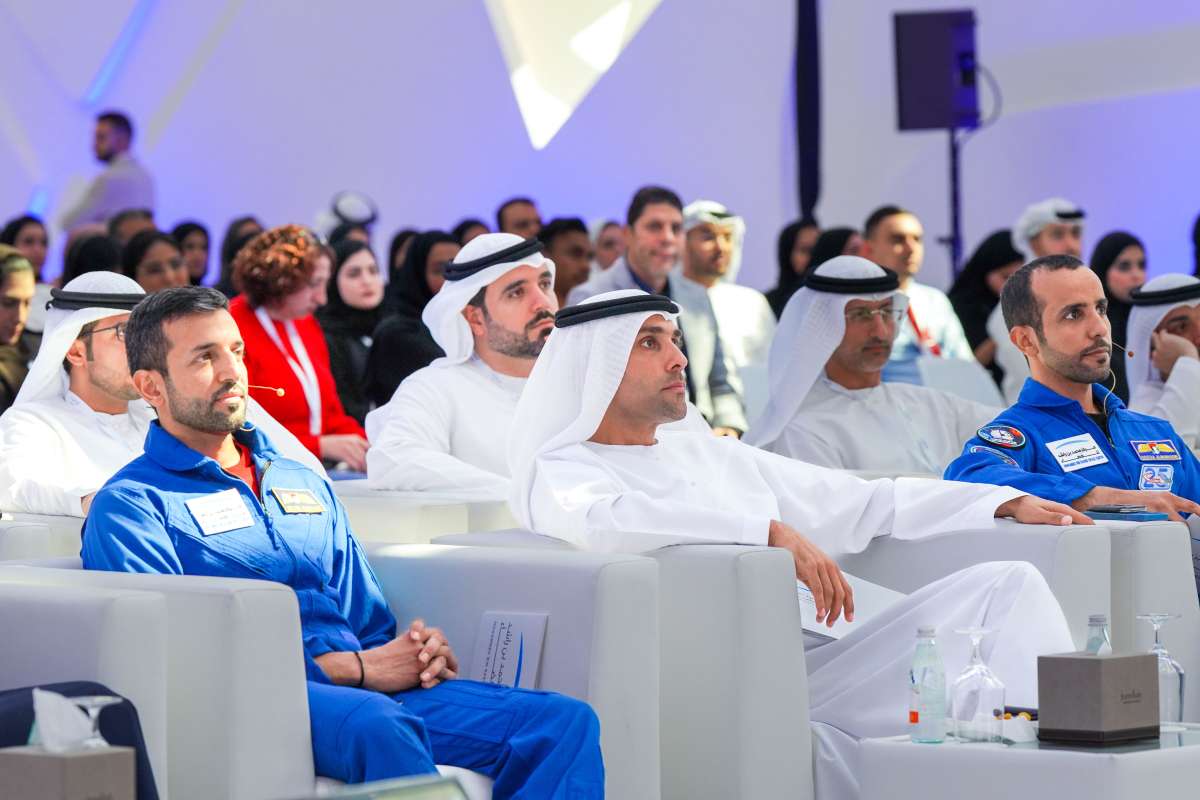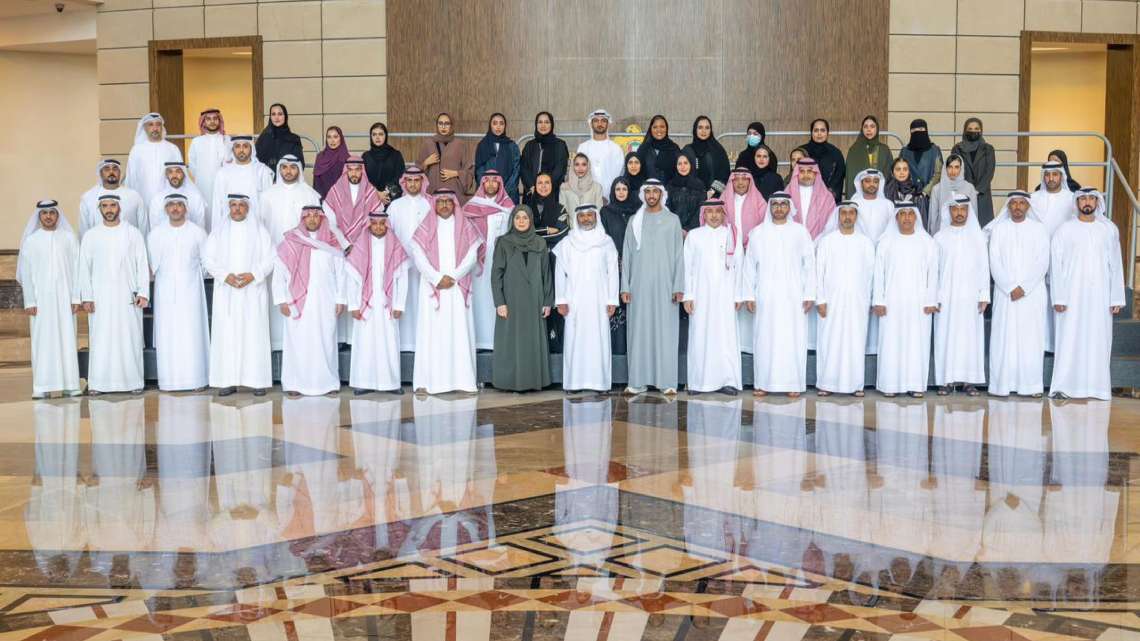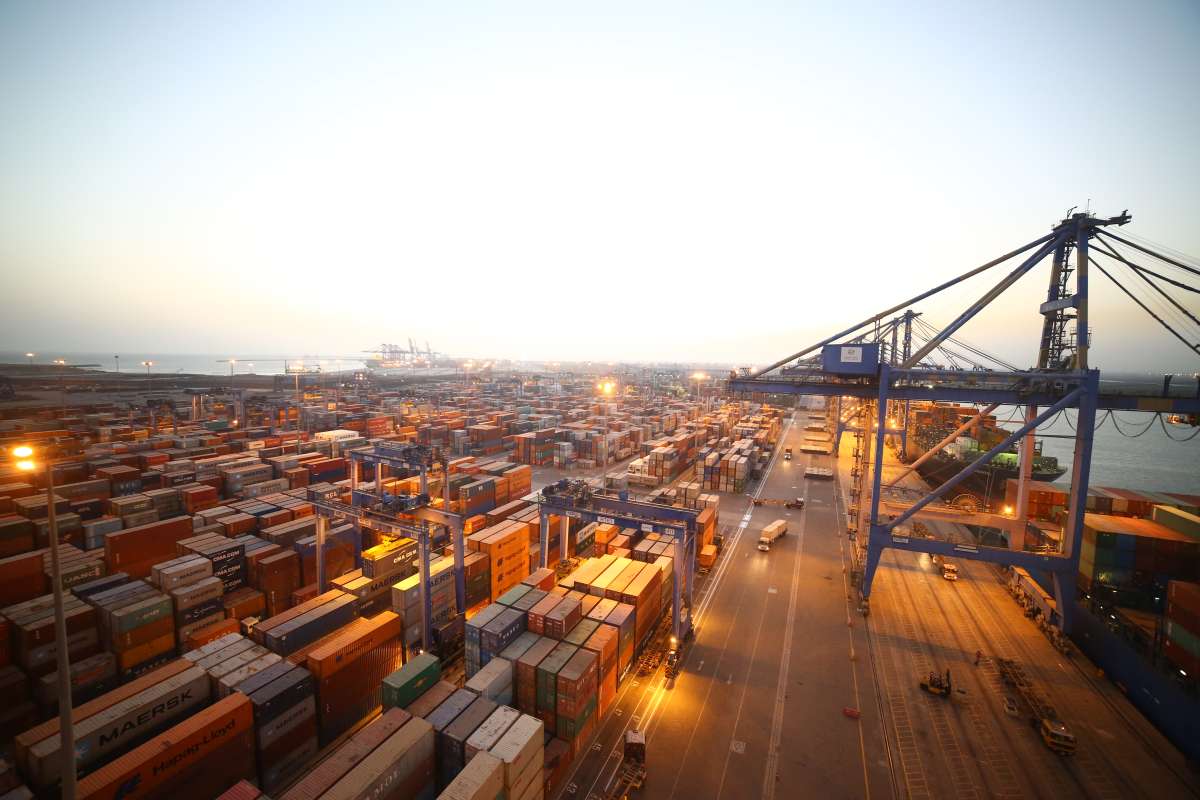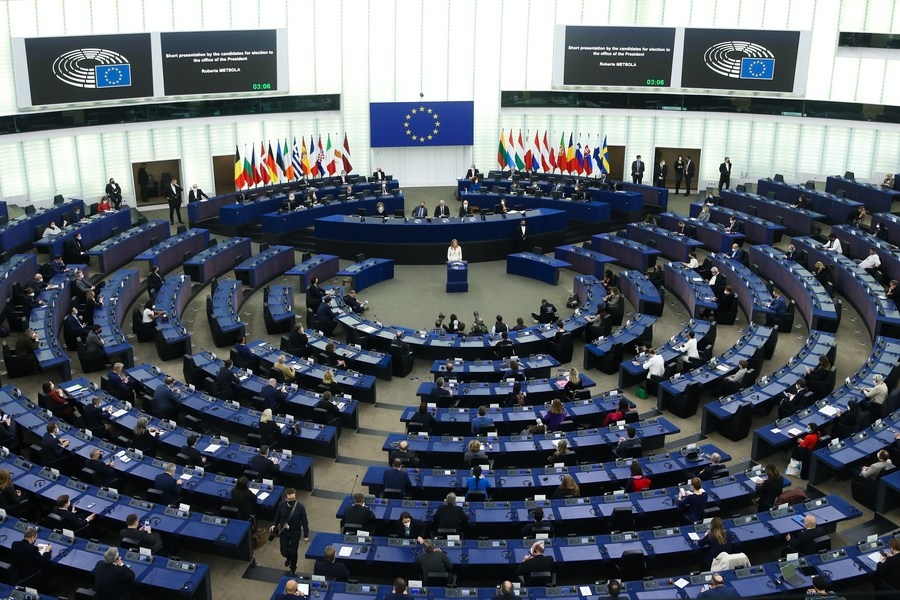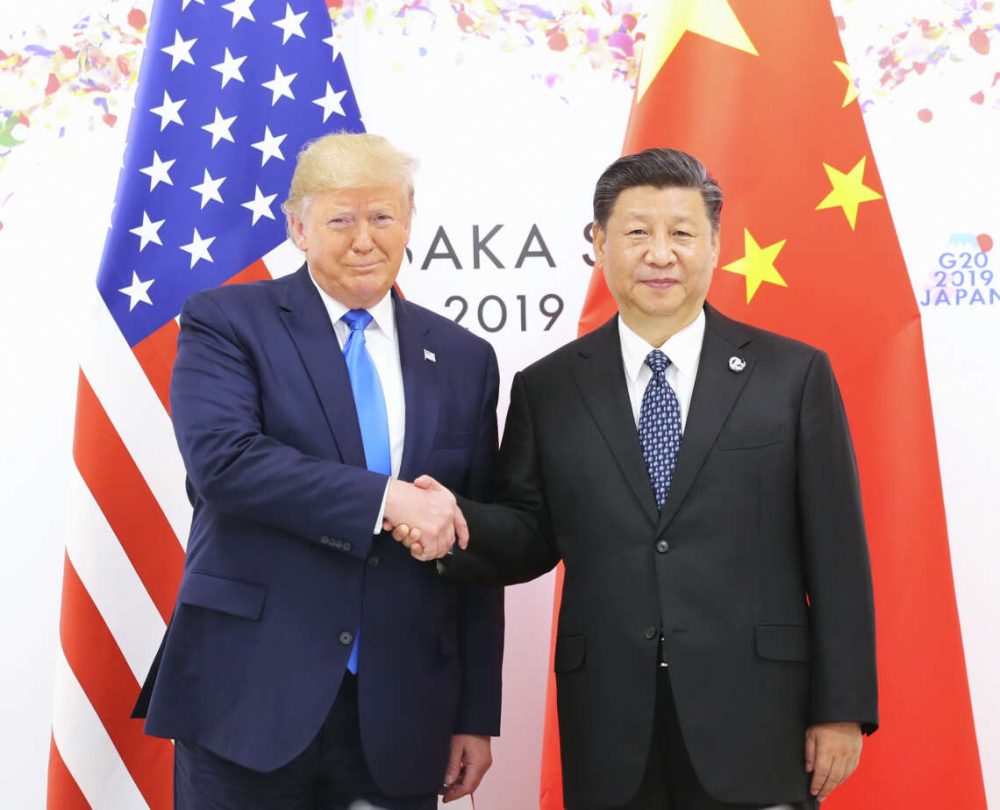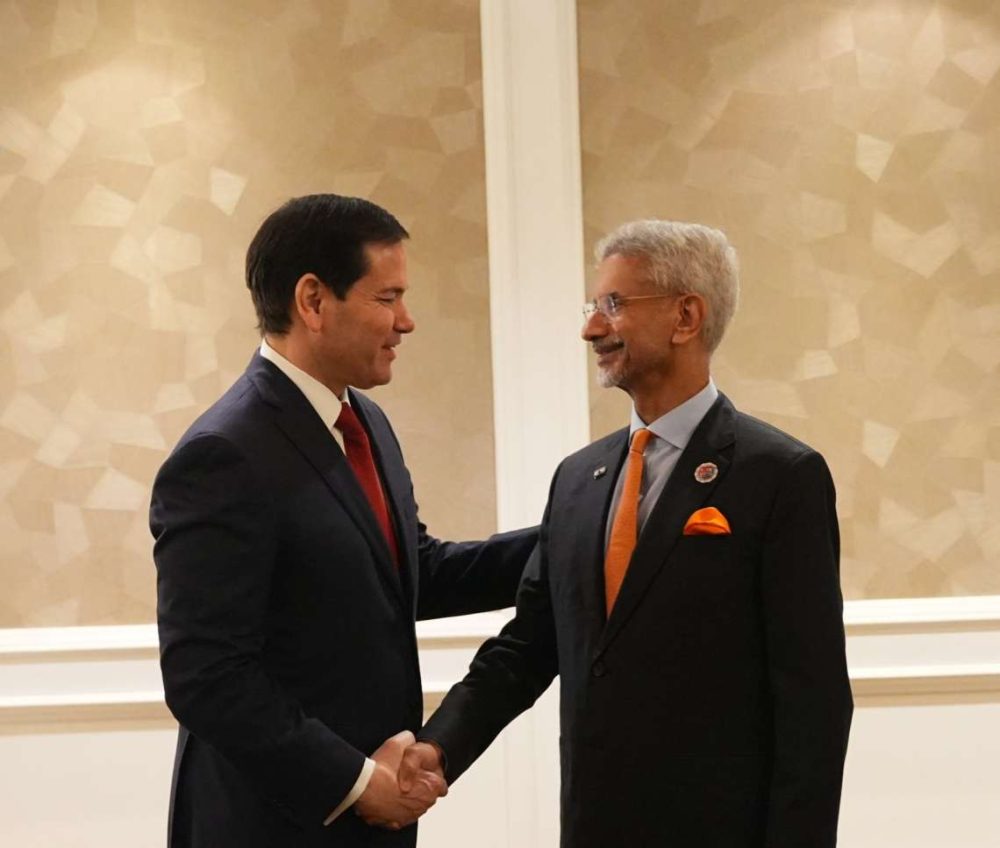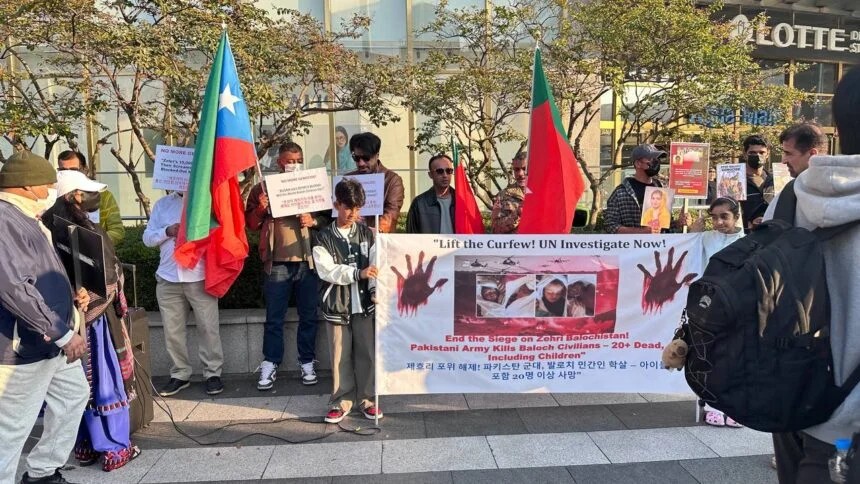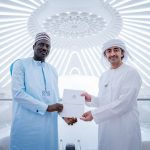The mission will make the UAE the 11th country to send astronauts on a long-duration mission to the ISS as well as train and prepare them for spacewalks…reports Asian Lite News
The Mohammed Bin Rashid Space Centre (MBRSC) revealed details of the second crewed mission of the UAE Astronaut Programme to the International Space Station (ISS) at an event held at the Museum of the Future.
Scheduled for launch on 26th February at 11:07, the mission will be the first long-duration Arab astronaut mission. Sultan AlNeyadi is the prime astronaut of the mission while Hazzaa AlMansoori is a backup crew.
The star-studded event witnessed the unveiling of the mission logo and the announcement of details of the mission, including training, ISS operations, research experiments and the upcoming stages of the mission.
The event was attended by Mohammad bin Abdullah Al Gergawi, Minister of Cabinet Affairs; Salem Al Marri, Director-General of MBRSC; Emirati astronauts Sultan AlNeyadi and Hazzaa AlMansoori etc.
The mission will make the UAE the 11th country to send astronauts on a long-duration mission to the ISS as well as train and prepare them for spacewalks.
UAE Mission 2
Dubbed as Crew-6, the mission will launch aboard the SpaceX Crew Dragon spacecraft from Launch Complex 39A at NASA’s Kennedy Space Center in Florida, with Emirati astronaut Sultan AlNeyadi being designated as the Mission Specialist of the Prime Crew along with NASA astronauts Stephen Bowen (Spacecraft Commander) and Warren Hoburg (Pilot) and Roscosmos cosmonaut Andrey Fedyaev (Mission Specialist).
Crew-6 is part of Expedition 69, with Roscosmos Cosmonauts Nikolai Chub and Oleg Kononenko, and NASA astronaut Loral O’Hara joining the team at later dates. Expedition 69 will potentially continue to install the final pieces of iROSA, the roll-out solar arrays on the International Space Station, in addition to conducting scientific experiments and research.
The backup for Crew-6 comprises Emirati Astronaut Hazzaa AlMansoori (Mission Specialist), NASA’s Jasmin Moghbeli (Spacecraft Commander), ESA’s Andreas Mogensen (Pilot) and Roscosmos’ Konstantin Borisov (Mission Specialist).
Once onboard the ISS, Sultan will have a heavy schedule of experiments and dedicated time for live interactions with various entities, universities and schools. There will be 13 live calls and 10 ham radio interactions, and sessions for the community outreach programme with Emirates Literature Foundation, which will be allocated throughout the six months.
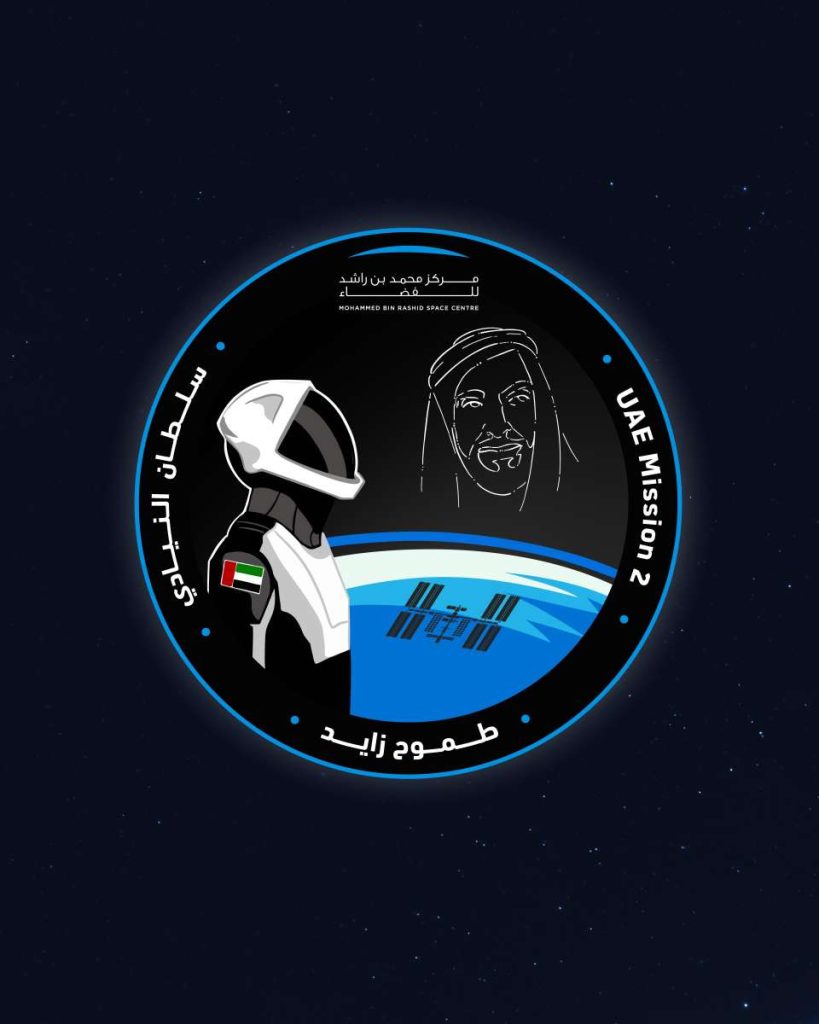
Mission Patch
The Director General of MBRSC unveiled the UAE Mission 2 patch logo while paying tribute to the UAE Founding Father, the late Sheikh Zayed bin Sultan Al Nahyan.
Inspired by the first mission logo patch, the second mission patch captures Sultan AlNeyadi as he is looking up to Sheikh Zayed, against the backdrop of the International Space Station, Earth and space. The logo signifies the six-month mission’s crucial role in advancing our understanding of space. The mission will add scientific value and find practical benefits to improve sustainability and efficiency back home.
Scientific and Educational Research
During his 4,000 hours onboard ISS, Sultan AlNeyadi will conduct over 19 advanced research experiments and studies in collaboration with NASA, European Space Agency (ESA), Canadian Space Agency (CSA), Japan Aerospace Exploration Agency (JAXA) and the National Centre for Space Studies (CNES) on a range of topics that include: the cardiovascular system, back pain, technical demonstration, epigenetics, immune system, fluid science, plant biology, material science, sleep analysis and radiation.
The mission will further comprise education outreach and engagement efforts to inspire the next generation of scientists and explorers. As part of the UAE Astronaut Programme Grants Research Programme, MBRSC has selected two research projects from the Mohammed Bin Rashid University of Medicine and Health Sciences (MBRU), that will also be part of the Crew-6 mission.
The first project will focus on assessing how the spaceflight environment of microgravity affects cardio-postural interactions, while the second project will investigate dental/oral cells in a microgravity-simulated environment on the ground. Both projects will engage students and researchers to ensure the capability development and qualification of new generations of scientists. In addition to MBRU, data sharing from the mission will include prominent local universities such as NYU Abu Dhabi and others.
Upcoming Mission Details
AlNeyadi and AlMansoori will undergo a two-week quarantine before launch, in preparation for the mission. The astronauts of Crew-6 mission will then travel to Kennedy Space Center six days before the launch. A day before the launch, the crew will try on their tailored spacesuits and conduct a dry rehearsal of going up to the launch site, entering the capsule and conducting all checks to confirm everything is in order.
Speaking on the upcoming mission, Sultan AlNeyadi said, “With the second mission to the ISS, we are raising the limits of our ambitions and raising the UAE flag ever higher. This mission presents a unique chance for the UAE to contribute to the international space community and advance our understanding of the universe. I am grateful for the support and training provided by NASA and our international partners, and I am excited to create new milestones together during this mission.”
“We are going to space to raise the limits of our ambitions and keep the flag of the UAE flying high. All these are for future generations, for whom a promising and auspicious future awaits,” he added.
Hazzaa AlMansoori spoke about what it means to be the first to travel to the ISS. “Being an astronaut from the UAE and the Arab world means being part of something bigger than yourself. It means dedicating your life to exploring the unknown and pushing the boundaries in the fields of space and science. It is a privilege and an honour to have had the opportunity to represent my nation and humanity in the vastness of space. Sultan’s mission to the International Space Station is a continuation of this incredible journey of discovery and exploration.”
The UAE Astronaut Programme is one of the projects funded by the ICT Fund of the Telecommunications and Digital Government Regulatory Authority (TDRA), which aims to support research and development in the ICT sector in the UAE and promote the country’s integration on the global stage.


